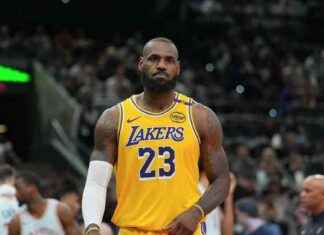A single rule, always the same: to make history to better understand what are sometimes called the upheavals of our time, this is what has been preoccupying Philippe Collin for almost two years. Two years he has been making us “binge” his series like the one on Léon Blum – 1.2 million downloads already and soon an adaptation for the stage with Charles Berling.
This time, Philippe Collin is interested in Jean-Marie Le Pen, while, let us remember, during the second round of the presidential election of 2022, his daughter, Marine Le Pen, obtained 41.5% of the vote. And that, in the process, 89 deputies from the National Rally entered the Palais-Bourbon. Hence this double question: “What is their ideological matrix?” And what does Jean-Marie Le Pen represent in the history of France? To try to answer this, Philippe Collin called on a number of historians (Fabien Archambault, Olivier Dard, Valérie Igounet, Nicolas Lebourg, Benjamin Stora), political scientists Nonna Mayer and Pascal Perrineau, as well as semiologist Cécile Alduy.
In seven episodes, rich and well constructed, Philippe Collin tells. He tells France since Philippe Pétain – to which he devoted a series in 2022 and of which this one could be the sequel. Indeed, when, on April 21, 2002, Jean-Marie Le Pen reached the second round of the presidential election and addressed the French, he spoke of “national recovery”, an expression “maturely chosen”, recalls Philippe Collin, because it was “Philippe Pétain’s obsession”. But let’s listen instead.
“Foul talk”
Episode 1. A childhood in Brittany, the death of his father, a fisherman, and the troubled waters of nationalism in which he soon navigated before engaging in the Algerian war (episode 2) and creating, in 1972, the Front national, a union of nostalgic French Algerians and neo-Nazi groups. In 1973, Jean-Marie Le Pen understood that he was going to have to change software: the oil shock and the economic crisis prompted him – with the help of François Duprat, a notorious anti-Semite and Holocaust denier – the slogan: “1 million unemployed, it’s 1 million extra immigrants” (episode 4).
Having become rich thanks to a sulphurous inheritance, Jean-Marie Le Pen has access (in the name of an electoral promise, that of political pluralism made by François Mitterrand) widely to the media. While the political class is torn over the responsibility for the outbreak of the National Front, here is what can be read in an internal party document in 1985: “Without being a secret formation, we must be extremely discreet and cautious. (…) We are surrounded by hostile forces. Never lose sight of the fact that someone who is not from the Front runs the risk of being against it – even your brother. ” Atmosphere.
Moreover, episode 5 shows how, at the end of the 1980s, Jean-Marie Le Pen drops the mask. On September 13, 1987, on RTL, he wrote what Philippe Collin, stepping out of his usual reserve, described as “filthy remarks” with good reason: “I am not saying that the gas chambers did not exist. I couldn’t see it myself. I haven’t researched the issue. But I believe it is a minor point in the history of the Second World War. (…) Yes, it is a point of detail! Are you telling me that this is a revealed truth that everyone must believe, that it is a moral obligation? I say that there are historians who debate these questions. »
We should also remember that, three years later, Jean-Marie Le Pen was received with great fanfare by the Iraqi dictator Saddam Hussein. That finally, he “licks his chops”, says Philippe Collin, when Jacques Chirac comes to hunt on his land with his sentence, in 1991, on “the noise and the smell” of immigrants.
Valuable Archives
Four years later, the arrival of technocrat Bruno Mégret allowed the FN to win three cities in the municipal elections, including Toulon, the most important: it was the first time that the far right had returned to power in France since the regime of Vichy, notes Philippe Collin, who closes episode 6 on the election of Marine Le Pen as president of the National Front, in 2011.
The last episode lets us hear the present through the words of young activists from the National Rally (new name of the FN from 2018) and ends with the voices of three major political figures of the 20th century who had another idea of ????national feeling : François Mitterrand, Charles de Gaulle and Léon Blum.
In conclusion, let’s say how remarkable and necessary the work of Philippe Collin and his team is. Because demanding. Because attentive, always, to the listener whom he comes to feed with precious archives and impeccable microphones. Because the author of Marcel Grob’s Voyage (Futuropolis, 2018) knows so well how to articulate past and present and tell us the story.






